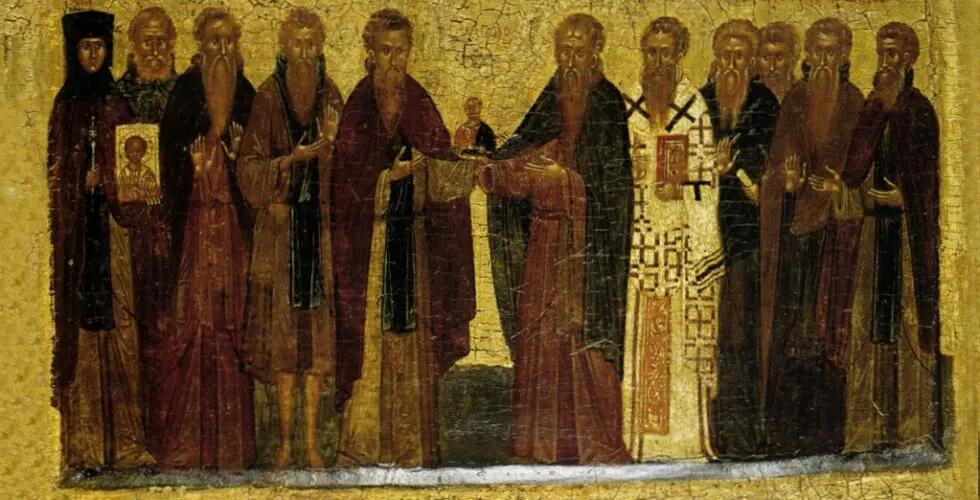
Friedrich Nietzsche wrote in his book, The Antichrist:
“Christianity has taken the side of everything weak, base, ill-constituted, it has made an ideal out of opposition to the instinct of strong life… [It] is a revolt of everything that crawls along the ground directed against that which is elevated.”
There is a deep regret in today’s secular culture about Europe embracing Christianity in the years following the death and resurrection of Jesus. This regret is tinted by a feeling of nostalgia when people read the ancient mythologies about powerful and enigmatic heroes defying the gods, slaying their enemies, and creating new worlds out of the cosmological bloodshed. These myths, say the skeptics, at least celebrate the strength and determination of humanity regardless of the facts surrounding the tales.
Nietzsche lamented the loss of strength and vitality due to the advent of Christianity. He attacked the Christian religion because he thought the Christian God glorified weakness, made taboo much of natural human instinct, and obstructed humanity’s potential. Christianity, Nietzsche concluded, gave rise to a kind of slave morality. The unwashed masses, he said, adopted Christianity as some sort of weapon that could be wielded against the aristocracy. By wielding this weapon, the talentless masses would subvert power in such a way as to manipulate it towards their own gain.
Looking at the late nineteenth and twentieth centuries, we see that Nietzsche was not only right, but actually a genius as it pertains to his sociological prediction. What he described as slave morality was, in reality, Christendom desperately grasping at the pagan machinery of human-sacrifice whilst also trying to be Christ’s communal expression on Earth. The result from this futile ecclesiastical and cultural struggle is the birth of an ideology which tries to outflank Christianity in its concern for victims, but still retains the coercive and sacrificial dynamic of the old pagan world.
Let us for a moment recognize what Nietzsche himself refused to see. The current groupthink of political correctness, which often operates in tandem with the state priesthood, is just one of many in a long and ancient line of cultic, mob-rule systems which have sought control and the right to sacrifice innocent victims. The only difference between the ancient and present day mob systems is that the current one disguises itself under a much glossier mask of radical humanism and victim-based politics.
One needs to look no further than the kind of leadership that arises as a result of slave morality. Much of the leadership in existence today claims to represent the downtrodden and alienated; by doing so, they garner the votes of the common people and then take the throne of authority. Once they sieze power, they use coercion on a massive scale in order to fulfill their ‘humanitarian’ plans. According to Hans-Hermann Hoppe, these ‘enlightened’ leaders force their subjects to live in an ‘Absurdistan,’ where “aggression, invasion, murder, and war are self defence and self defence is aggression, invasion, murder, and war… Freedom is coercion and coercion is freedom,” and where ‘black is white and white is black.’
These modern day leaders, along with their culture-influencing entourage of intellectuals, celebrities, and press, have truly enslaved the masses, binding them to an empire which masquerades as champion for the weak, yet both plunders their own people and bombs weak countries abroad.
Nietzsche said that we must abandon this slave morality which emanates from Christendom, and instead embrace the concept of the übermensch — the superhuman. The übermensch must transcend the good and evil of the old morality, and instead create a new morality based on strength and determination. In short, Nietzsche wanted humanity to embrace the spirit of the intoxicated god Dionysus. But little did Nietzsche realize that the Dionysian mentality, which arises from a god who arouses violence wherever he goes, is that of the violent, frenzied crowd.
Nietzsche’s intoxicated übermensch rages against the numerically-disadvantaged scapegoat who speaks the truth. The strength of the ubermensch means the strength of the crowd: the lynch mob which sacrifices people on altars in order to create a new world. Therefore, the Nietzschean urge for a new morality is essentially a rebirth out of the bloodshed of more victims. And so we have a power establishment today that is really Nietzschean. In a subtle twist of irony, the slave-morality statism which exists today shares Nietzsche’s yearning for a return of the Dionysian spirit in every way.
Even if we embrace the Nietzschean übermensch, we still remain enslaved to the mimetic nature of the mob. We are entangled in the machinery of coercion and sacrifice, for it is only by assimilation into the crowd that we can impose our will through sheer numerical strength. It is through the hypnotized collective that we sacrifice scapegoats in order to reinforce the religion of modern day government.
Réne Girard wrote in Evolution and Conversion,
“Nietzsche took sides with the persecutors. He thinks he is against the crowd, but he doesn’t realize that the dionysian unanimity is the voice of the crowd. One only has to take the Gospels literally to see that Christ had only a dozen apostles on his side, and even they are weak and vacillating.”
The übermensch cannot be the way towards a golden age of life affirmation. To remain entangled in mimetic rivalry and groupthink is to fall back into the pit of sacrifice. To affirm life, one must denounce the scapegoat-hunting mob and embrace non-violence and persuasion through voluntary interaction. The true aristocracy lies elsewhere, for it stands against the mob. But where can it be found?
According to Renè Girard, “The Christian is the heroic exception.”
Christ provides a way out of the mesmerizing and coercive power of the collective. The way involves imitating Jesus and his self-sacrificial nature. In his earthly life, Christ stood against the maddened collective of his day. He spoke the truth and deconstructed the powers and principalities. As a result of his heroic stand, he was crucified.
The way of the Nazarene is not weakness (as Nietzsche claimed), rather, it is heroic in every real sense of the word. The stand against mob coercion requires a great deal of courage and strength; it requires the actor to be dangerous. This is the true hero that the pagan mythologies try to depict but fail miserably to grasp. Christ, in the true mythological sense, confronts the dragon of mob chaos, boldly speaks the truth, bears the burden of suffering, journeys into the underworld, and recues the hostages. He emerges victorious on all fronts, and in doing so he requires not an iota of violent force, for to wield a sword he would be utterly-dependent on a mortal instrument made by inferior weaklings.
The way of the Nazarene is the true aristocracy, for only a few adhere to it. This aristocracy of Christ destroys the false, worldly aristocracy because the Nazarene does not need to utilize violent force (as if the truth couldn’t stand on its own).
Unlike worldly aristocracy, the Christian does not shun those beneath him, but instead lifts others up and trains them to be warriors against the collective machinery. This aristocracy is beautiful in every way, and it renders the machine obsolete through its poetic disarmament of evil. The aristocracy of Christ is the embodiment of beauty, and it cannot be unraveled.

Articles posted on LCI represent a broad range of views from authors who identify as both Christian and libertarian. Of course, not everyone will agree with every article, and not every article represents an official position from LCI. Please direct any inquiries regarding the specifics of the article to the author.
Did you read this in a non-English version? We would be grateful for your feedback on our auto-translation software.
), //libertarianchristians.com/wp-content/plugins/smartquizbuilder/includes/images/template6-latest.jpeg))

), https://libertarianchristians.com/wp-content/plugins/smartquizbuilder/includes/images/template6-latest.jpeg))








































), https://libertarianchristians.com/wp-content/plugins/smartquizbuilder/includes/images/template6-latest.jpeg))
), https://libertarianchristians.com/wp-content/plugins/smartquizbuilder/includes/images/template6-latest.jpeg))
), https://libertarianchristians.com/wp-content/plugins/smartquizbuilder/includes/images/template6-latest.jpeg))





*by signing up, you also agree to get weekly updates to our newsletter
Sign up and receive updates any day we publish a new article or podcast episode!